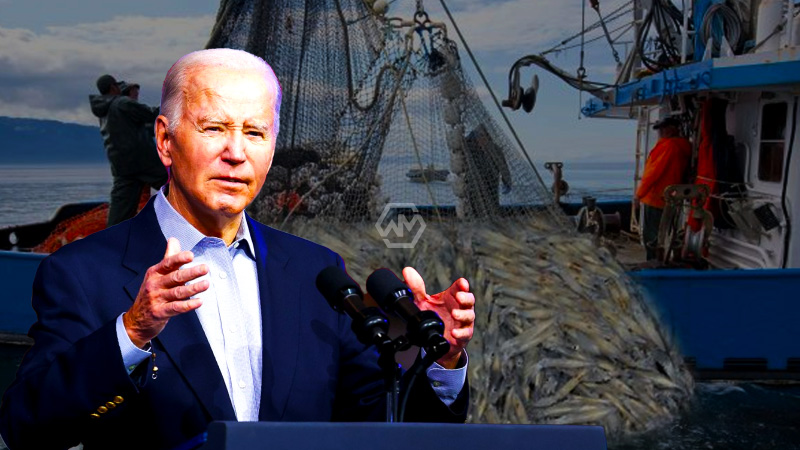- NEFSA filed an amicus brief in support of the Biden administration’s position about fishing sector control in a forthcoming Supreme Court case.
- Commercial fishing expeditions are accompanied by monitors from the NOAA.
- An unwelcome intrusion occurs when a government agent looks over the observer’s shoulder.
The author describes being on his 14-year-old commercial fishing vessel, the F/V Teresa Maria IV, when it was overturned by a rogue wave while trawling the Gulf of Maine. Because of the incident, the New England Fishermen‘s Stewardship Association (NEFSA) filed an amicus brief in support of the Biden administration’s position about fishing sector control in a forthcoming Supreme Court case.
According to the author, certain commercial fishing expeditions are accompanied by monitors from the National Oceanic and Atmospheric Administration (NOAA), who charge the fishermen for these arrangements.
Worker fisherman
An unwelcome intrusion occurs when a government agent looks over the observer’s shoulder, makes notes, and waits for an error. The expense of the observers, over the course of a multi-day cruise, is thousands of dollars, at least $700 per day.
If NOAA may lawfully charge fishermen for the monitors, it is a matter for the Supreme Court to determine. One of the riskiest and most stressful workplaces in the nation is that of commercial fishing vessels, as highlighted in the NEFSA brief. At-sea monitors are not prepared for situations such as these; the author has witnessed seasoned fishermen falter under duress.
When things go wrong, monitors can become violently sick or experience mental health problems, which makes it hard for the author to ask them for help.
The author clarifies that a high school degree and twelve days of agency training are prerequisites for becoming a NOAA at-sea monitor. Commercial fishermen, on the other hand, have lived at sea for generations. According to NOAA, judges ought to respect their “expertise” and refrain from meddling with fisheries management.
The instances presented by the author highlight a basic issue with the deferential regime by raising doubts about the agency’s competence, the compatibility of its decisions with the industry it oversees, and its failure to consider a critical issue. To create safe and sustainable fisheries, the author thinks that judges should no longer give deference to agency legal interpretations.



